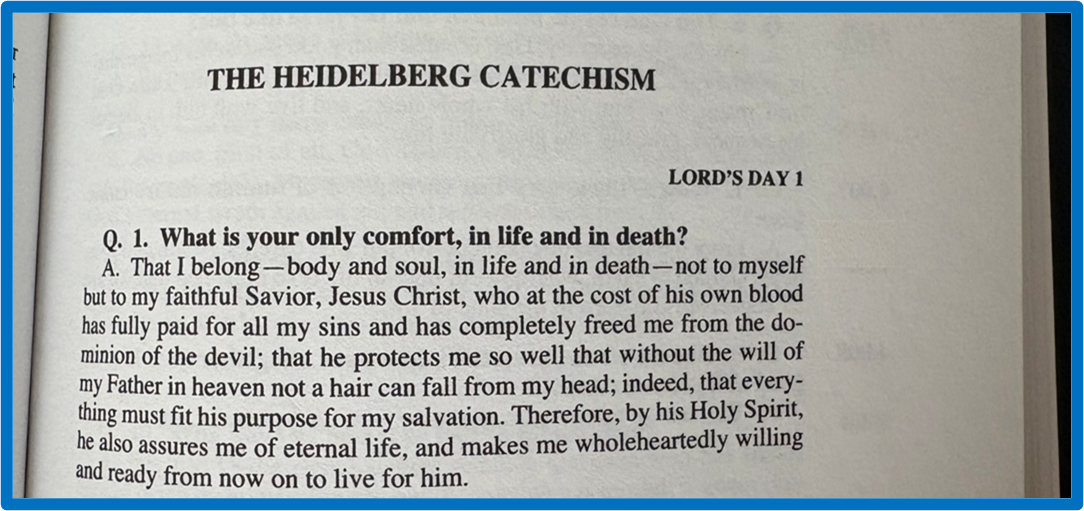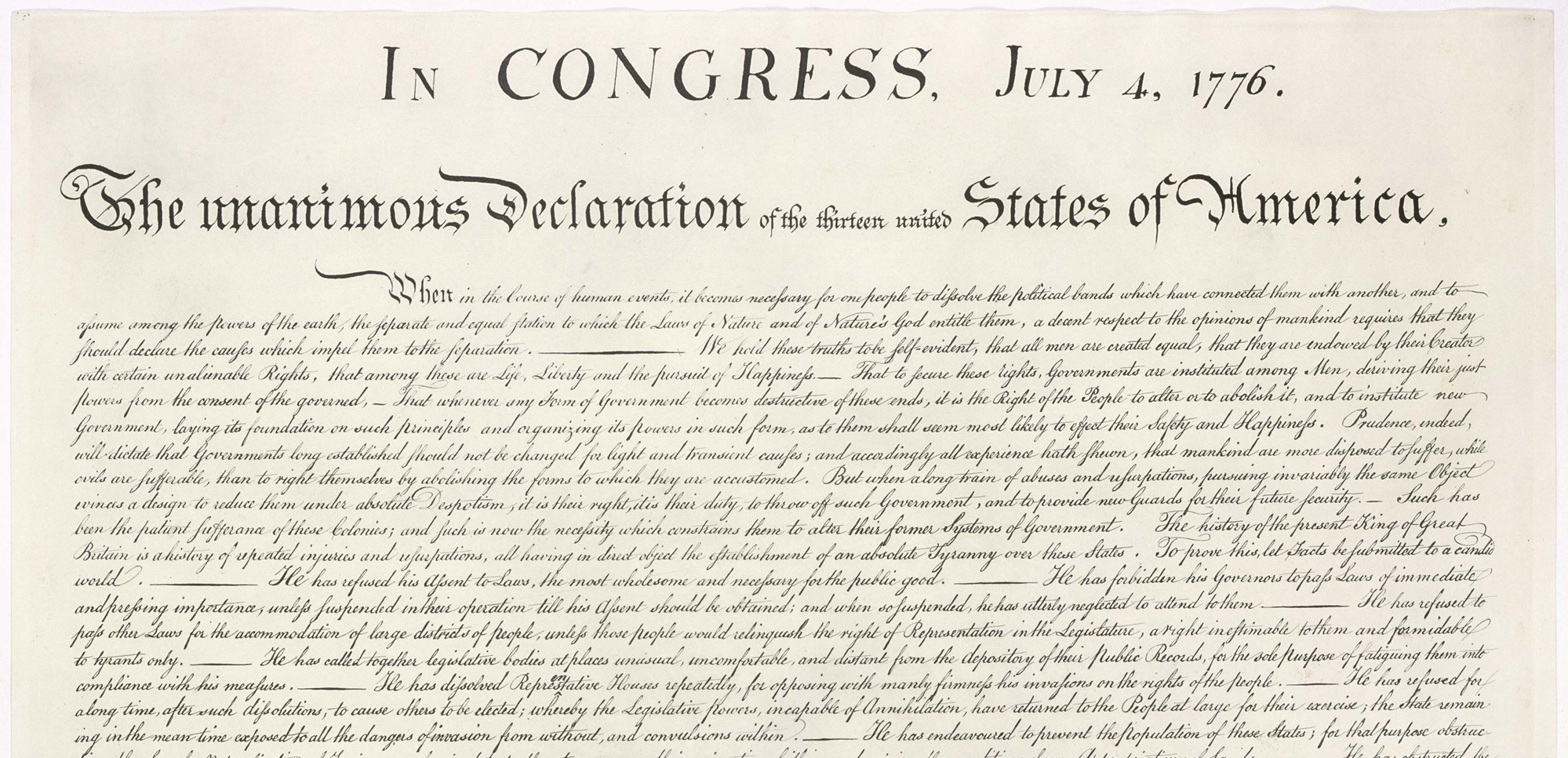It’s a good sign when you think about Sunday’s sermon the entire following week. Even when you preached the sermon. It was my privilege to preach last Sunday’s sermon at Ossian Presbyterian Church. In the course of the sermon, and it made sense in the context of the sermon, I quoted the first question from Lord’s Day 1 of the Heidelberg Catechism. For those of you not familiar with the catechism, it dates from 1563 and the now German city of Heidelberg. It has been used throughout the various branches of Reformed Christianity, but is especially identified with the Dutch Reformed churches of which it is one of the three standards of faith, or Forms of Unity, along with the Canons of Dort and the Belgic Confession.
Enough of the history lesson. In the sermon I made the point that creeds, confessions, and catechisms help us make sense of our world and our lives in it. Lived experience is not ultimate truth for those who know the creeds of the church. Rather, the creeds explain the meaning of those experiences.
Here is the first question and answer from the Heidelberg Catechism (1963 translation):
Q. What is your only comfort, in life and in death?
A. That I belong—body and soul, in life and in death—not to myself but to my faithful Savior, Jesus Christ, who at the cost of his own blood has fully paid for all my sins and has completely freed me from the dominion of the devil; that he protects me so well that without the will of my Father in heaven not a hair can fall from my head; indeed, that everything must fit his purpose for my salvation. Therefore, by his Holy Spirit, he also assures me of eternal life, and makes me wholeheartedly willing and ready from now on to live for him. Continue reading






